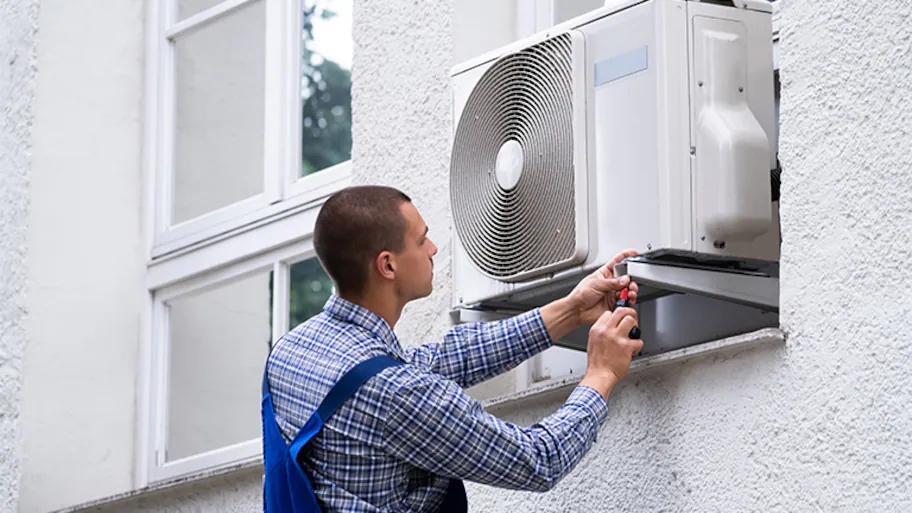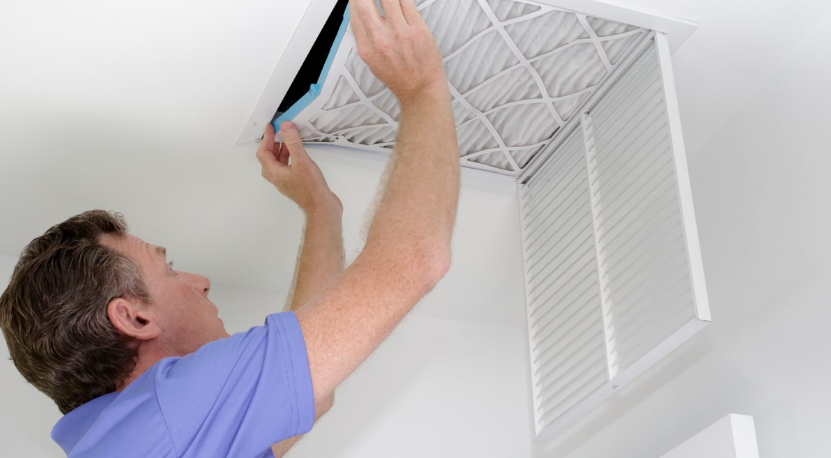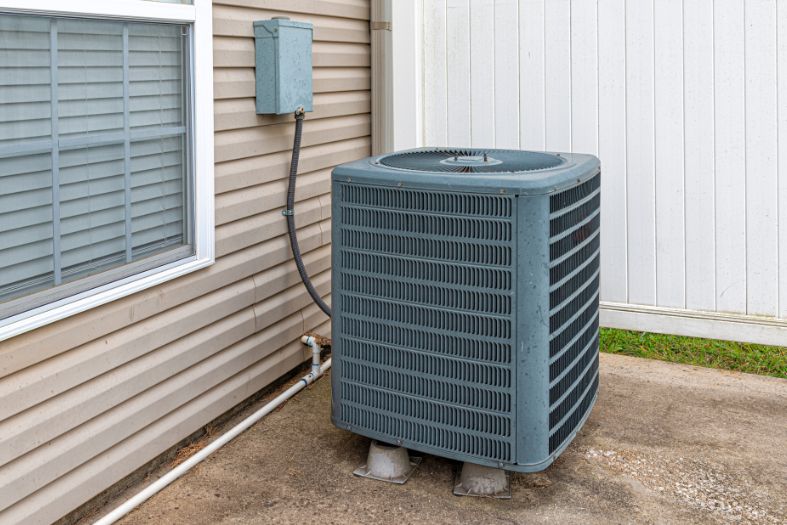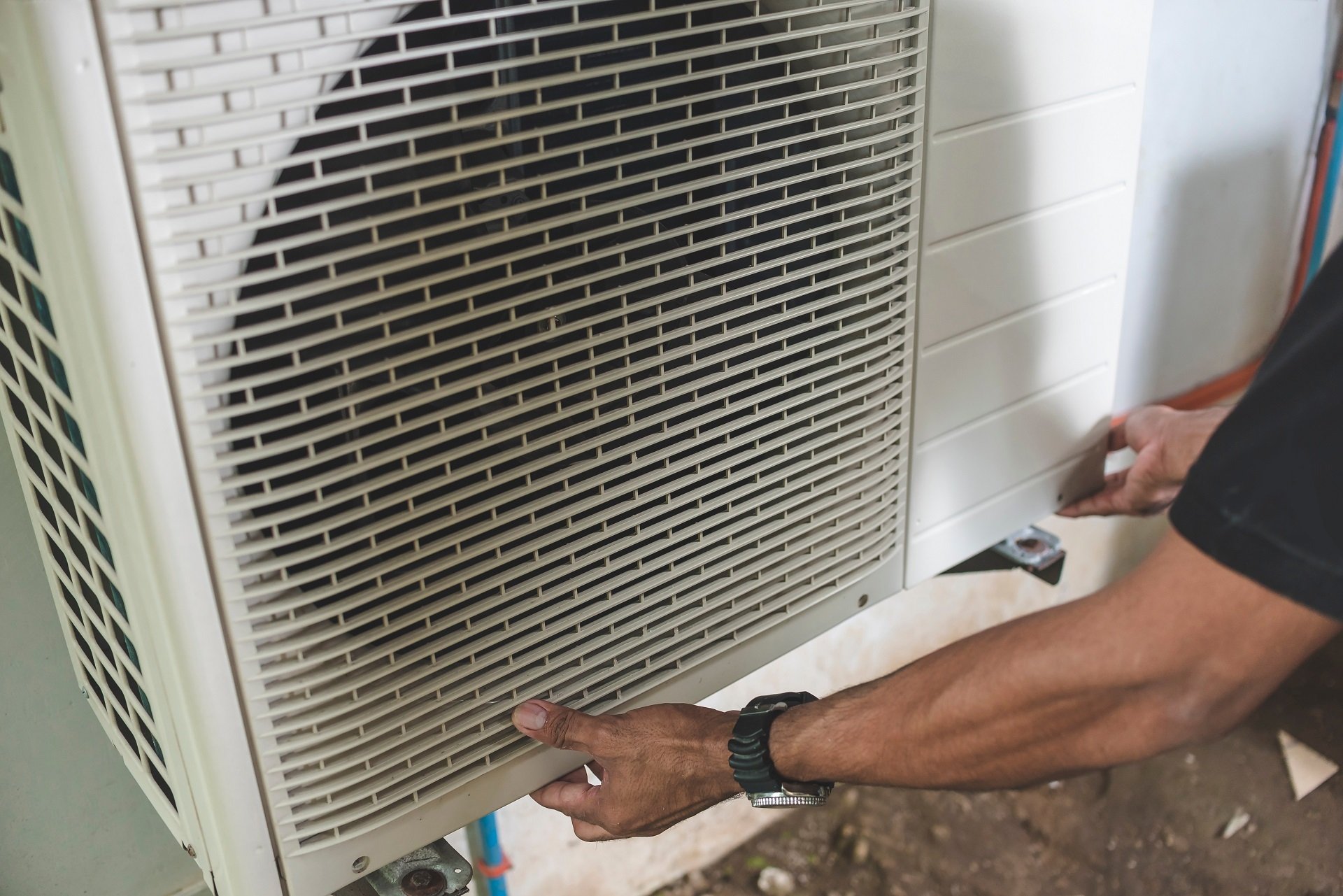Maintaining the effectiveness of your air conditioning system goes beyond comfort. It could end up becoming a safety and health issue. For instance, San Bernadino experiences 96 degrees Fahrenheit summertime temperatures on average. Interior temperatures can get dangerously high given the high ambient temperature.
Humidity management is another benefit of air conditioning. Reducing humidity aids in the prevention of mildew and mold growth. Your respiratory health is safeguarded by limiting the formation of mold and mildew.
So, to assist you in maintaining a smooth operating system, here are six AC maintenance ideas.
1. Inspect and Replace Your Filters
One of the most crucial things on your checklist for air conditioner maintenance is cleaning your HVAC air filters. For the purity of the air inside your home, especially if you have a ducted system, a clean filter is essential. A filthy filter affects the quality of the recycled air inside, taking into account the airflow cycle.
Additionally, blocked filters restrict airflow and make your system work harder, which lowers the system’s lifespan and efficiency. To find out how frequently to clean or replace (if you have disposable filters) your filter, speak with an HVAC specialist or refer to the filter label. The DIY instructions to clean or change your air conditioner filters are listed below:
- Shut down your air conditioning system.
- To discover and remove the filter, locate the service panel and open it.
- If the permanent filters on your unit are made of water, use a garden hose or your sink to clean the filter.
- After letting the filter air out fully, replace it.
- You can replace the old filter with a new one if you have a disposable filter.
2. Check and Clean the Condensate Drain
An HVAC drain blockage indicates that your unit needs to be serviced. The refrigeration cycle’s condensation can be released through the condensate drain. It connects to the indoor unit’s drain pan or tray and empties into an outdoor collection point. Debris like slime, mold, and algae can build up in the HVAC drain line and cause blockages.
Insulation and other parts of the indoor unit may break off and clog the condensate drain. Look for blockages in the drain by inspecting the condensate tray under the indoor evaporator coil. There can be a blockage in the line if water builds up in the tray. When you take out air filters, you might also see water collecting.
Utilizing a vacuum cleaner, reach the end of the condensate drain (which empties into a garden, gutter, drain, or downpipe) and clear the drain. By using this method, obstructions can be removed, restoring normal operation to the HVAC drain. Should the water leak continue, there might be a hidden issue that has to be looked into by an expert.
3. Clean Your Indoor Unit
Particularly on the coil and fan barrel, layers of filth, grime, dust, and even mold can accumulate on the indoor HVAC unit. This accumulation might result in restricted airflow in the system, which can cause a musty or moldy smell. Use a cloth, feather duster, or washer that has been gently wet to clean the inside unit regularly. The air conditioner can be cleaned and sanitized with an antibacterial solution.
Spritzing the cloth before using it on the unit’s shell is the most effective approach to accomplish this. Avoid directly spraying liquid onto the device.
Once the indoor HVAC unit has been disassembled, it can be chemically cleaned using specialized equipment. However, because of safety and technical issues, it is recommended to leave this work to licensed and professional HVAC technicians.
4. Make the outside unit clear and clean
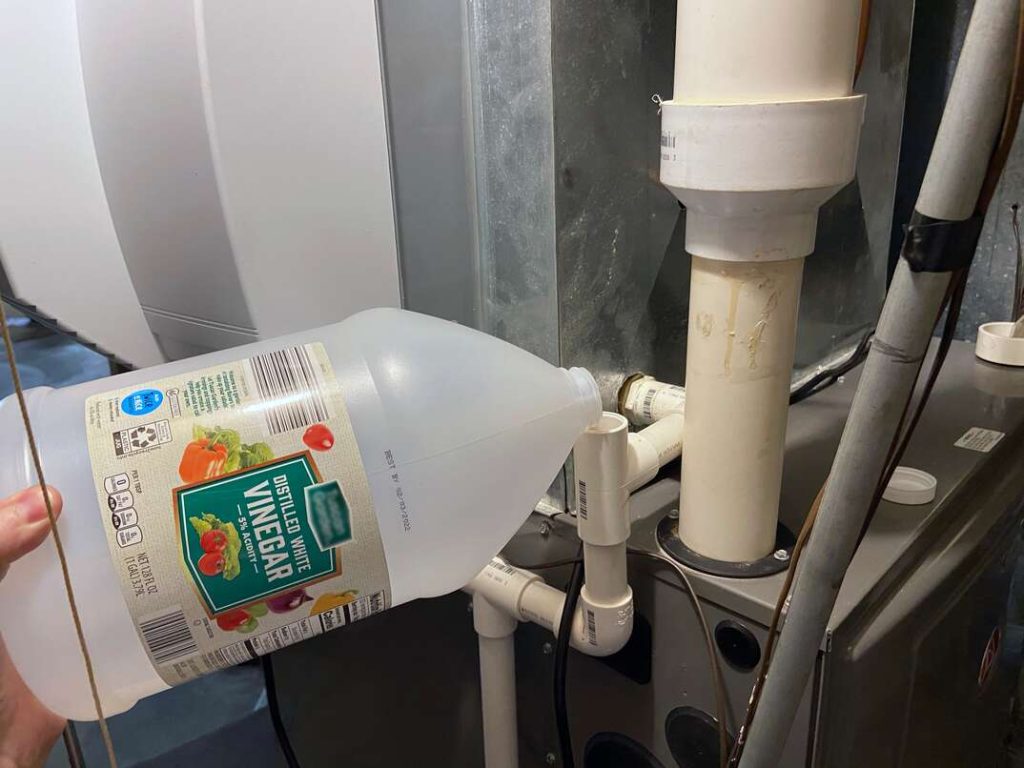
The air movement surrounding your outdoor AC unit (condenser/compressor) may be restricted by structures, objects, and organic debris, which could affect the system’s efficiency. Make sure to take out everything that may be near the outdoor unit, such as bins, home/garden equipment, storage boxes, etc.
You can clean the unit’s housing with a moist cloth if any dirt, plant debris, dust, or grime has accumulated on it. Your condenser coils can also be cleaned, but it’s best to leave this task to the experts. Coil fins that are damaged by do-it-yourself cleaning may have less heat exchange and efficiency. Within electrical components, improper cleaning might also have an impact.
5. Check the Insulation
Regularly inspecting the insulation surrounding the copper HVAC piping is crucial. Refrigerant is moved between the outside (condenser) and indoor (evaporator) units via the pipes. Insulation keeps your HVAC system’s thermal efficiency stable. The white or black foam rubber that is wrapped around the piping serves as insulation.
Visually inspect the insulation surrounding the suction lines and evaporator to ensure it is complete and in good shape. Insects, rats, vermin, and severe weather can all leave damage indicators. If any exposed insulated AC pipework portions are discovered, get in touch with an HVAC specialist.
6. Schedule Annual Tune-Ups
A licensed HVAC professional’s annual service and maintenance is referred to as an AC tune-up. This maintenance helps maintain your HVAC system in peak working order, boosts longevity, increases efficiency (saving you money on utility costs), and guards against system failures.
A professional in HVAC maintenance might find small problems that could grow into larger ones in the future. The maintenance duties carried out by Air Conditioning’s HVAC technicians include:
- Running a test with many ports
- Troubleshooting typical maintenance problems (blocked condensate drains, filthy coils, and clogged air filters).
- Lubricating gears in machinery
- Replenishing refrigerant
- Identifying the need for repairs
Conclusion
All things considered, putting in place a preventive maintenance plan for your air conditioner will ensure that you breathe cleaner air, boost comfort and safety in your house, prolong the life of your system, save you money, and provide you with peace of mind.
You can take advantage of these advantages by doing additional do-it-yourself AC maintenance tasks. For routine AC service inspections, tune-ups, testing, and repairs, it also pays to use a professional air conditioning service.



